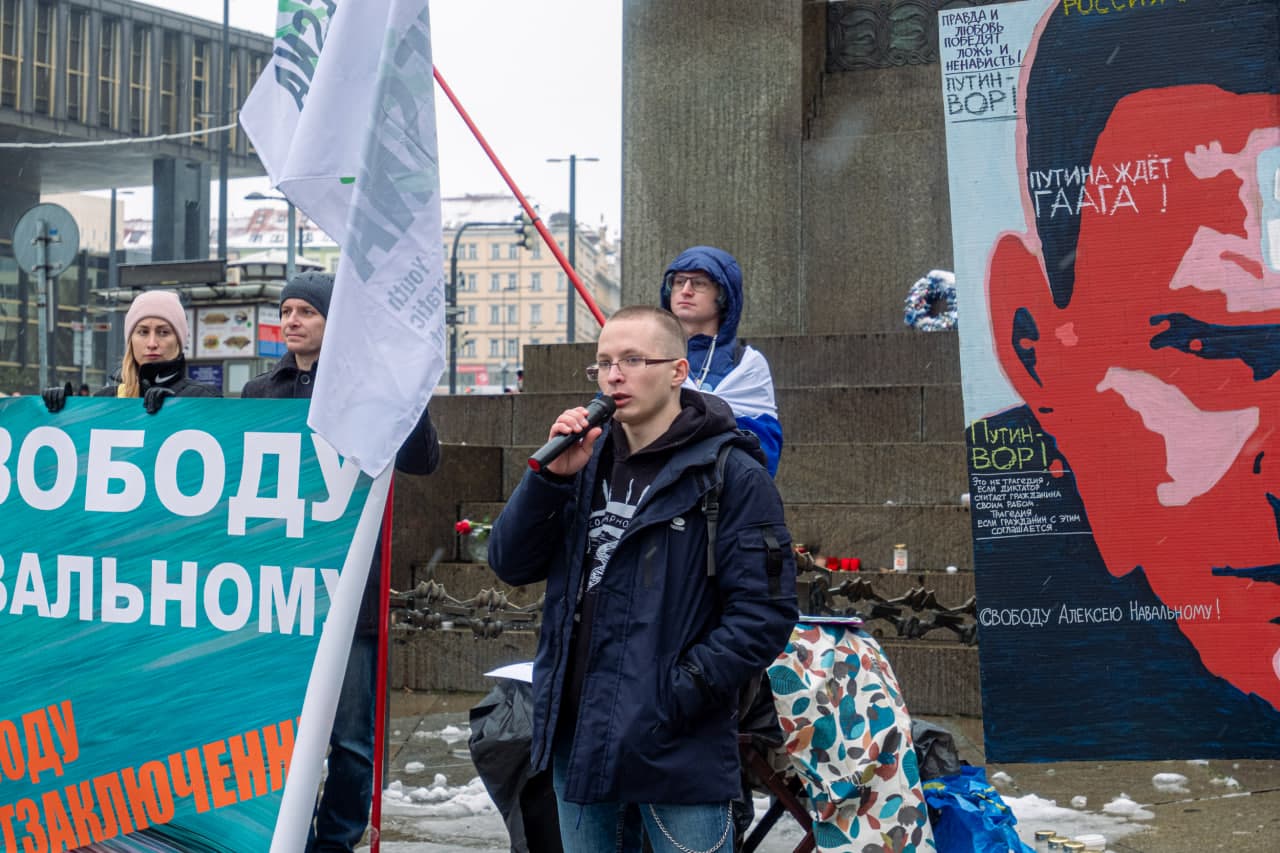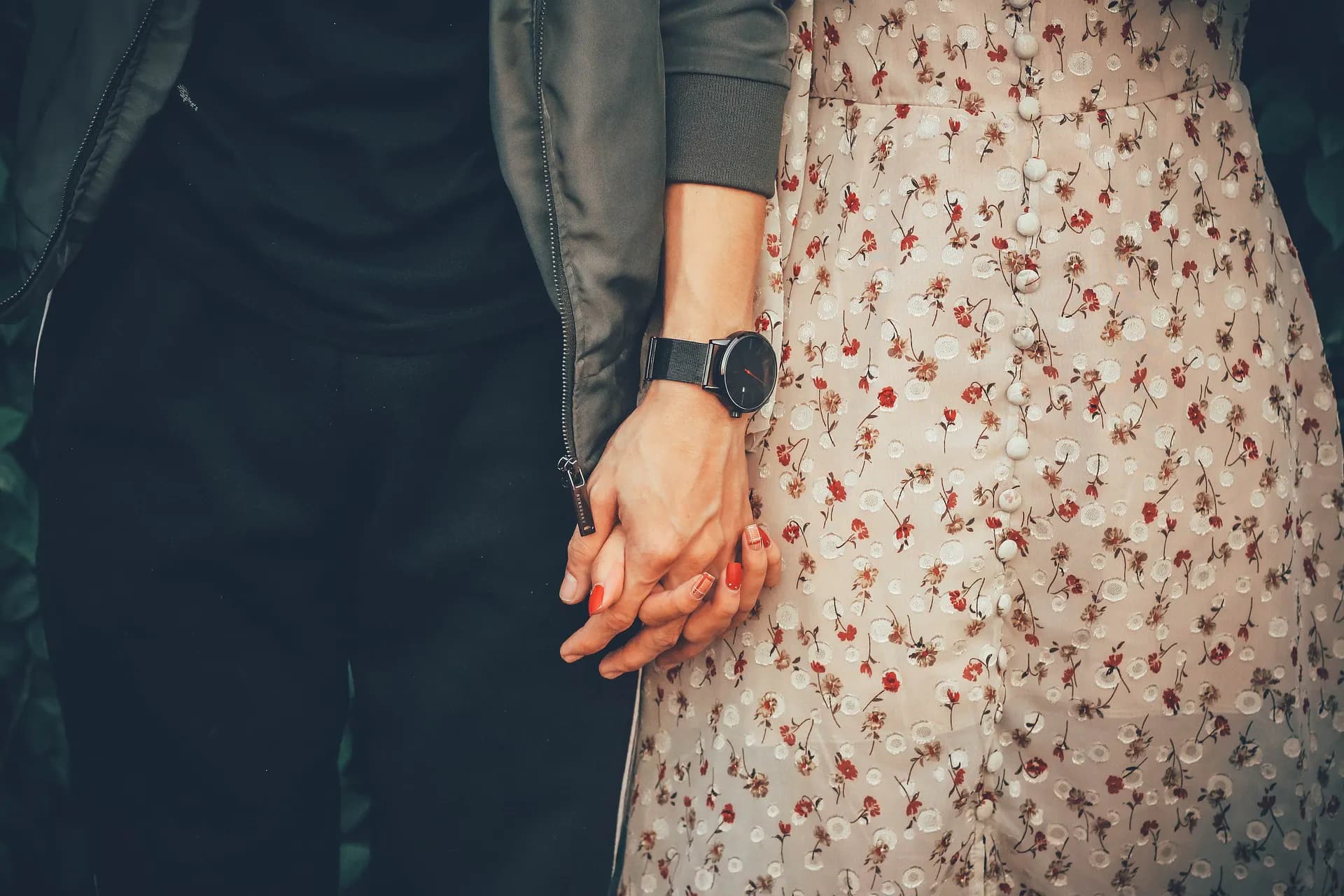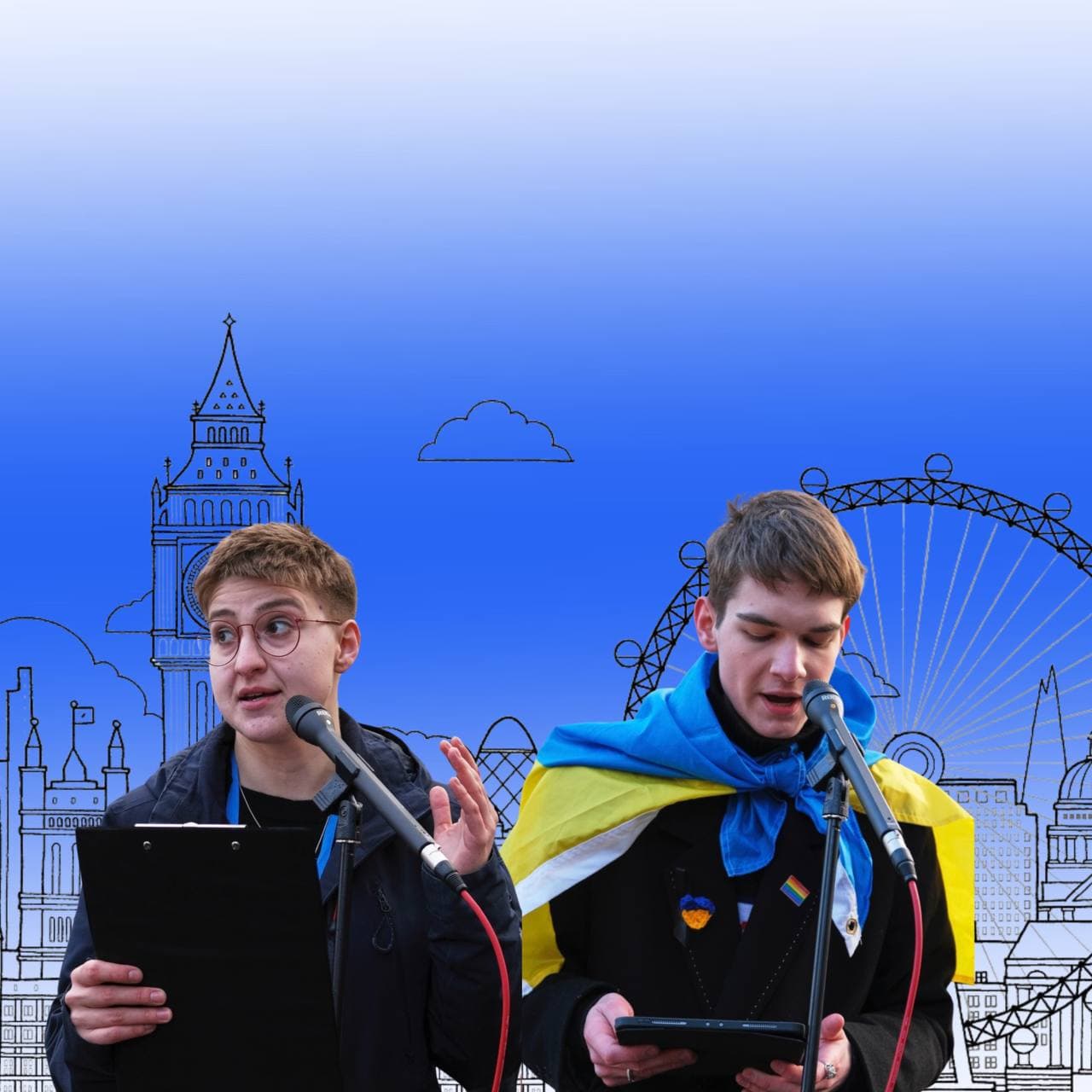Kysh (Andrey)
...do not give up and do not despair, do what you think is the right thing to do. Russia will definitely be free.


Vitaly is a member of the Swedish Anti-War Committee "Russians Against War", which emerged from the beginning of Russia's war with Ukraine
Tell us about yourself, what do you do, where do you study, work, about your activities outside of volunteering?
My name is Vitaliy, I study at the IT faculty of Stockholm University. At the moment I'm working part-time as a game master in a quest room. I do Brazilian jiu-jitsu.
How and when did the Swedish Anti-War Committee begin? By whom was it organized?
The Swedish Anti-War Committee emerged at the very beginning of the war. It was organized by people who have been part of the opposition for a long time. They went out to protest against the lawlessness that is happening in Russia, since long before the war began. We regularly hold our own events in the committee, participate in others, hold evenings where we write letters to political prisoners, work closely with local media, organize charity auctions and raise funds to help Ukraine in various creative ways. Here is an example.
Do you interact with other anti-war organizations in Europe? How?
Yes, we do. For example, we hold some events jointly. Some people have a good relationship personally. Of course, I would like for even more interaction and coordination, but each individual movement, first of all, acts locally. The main effort of the activists is aimed at that, which makes sense.
How did the war affect you personally, your environment and the place where you live?
Well, this whole situation has traumatized me very much. The same happened to my environment. I immediately stopped communicating with those who supported the war. Sweden and Swedes mostly reacted with great sympathy and understanding to the situation in which Ukraine and Ukrainians found themselves.
Have you faced discrimination or intolerance from society since the outbreak of the war?
No, I wouldn't say that I have. There are Ukrainians for whom it is objectively difficult to communicate with any person who is related to Russia in any way. But I understand where they're coming from. This is a natural reaction for most people in such a situation. As for everyone else, I have never felt that I was looked at with bias because of my nationality.
What exactly prompted you to start volunteering?
Personally, I was motivated by an inability to simply sit and do nothing in such a situation. I simply couldn’t let myself do that.
Do you feel that what you are doing really changes anything? How? How did it affect you personally?
Yes, I do. Because I often meet people who believe that people hold such convictions deserve their respect. This is enough for me to understand that all this is not done in vain. Now I can no longer look at some things neutrally. I have made my choices, and it impacts my life in a lot of ways.
For example?
I can barely communicate with some people I've talked to a lot in the past. My friends, family members. There's exceptional about this, but I've always been tolerant of other people's views that differ from mine. I didn't let it spoil my relationships. But not in this case. Also, I'm not sure that I'll be able to return to my homeland in the foreseeable future. This is also something that I've had to sacrifice. I have always thought of my homeland well, despite everything that happened there.
Tell us about the most memorable events that you have held? Why do you remember them personally?
Most of all I remember the event in Stockholm on Russia Day in 2022. It was very large-scale, and I personally made efforts to make it international: I went to Prague and met members of the anti-war committee there, at that time I was not yet an active participant in the anti-war committee in Sweden. There I threw in the idea that it would be nice to hold a joint international protest, connected representatives of the two committees, and as a result, more than 30 countries joined us. I believe that this was the peak of unity for different anti-war minded Russians living abroad: various anti-war movements managed to agree to hold a joint action in more than 30 countries and 70 cities. There was no such thing before or after. And it is unlikely happen again. Since then, there has simply been no active communication between different anti-war movements. The protest was directed against the war. We, in Stockholm, marched through the city center. There were about 300 people. This is the maximum number of people that have ever shown up. There was a feeling of some kind of global movement. This is why I started actively engaging in the anti-war movement in the first place.
What difficulties did you have to face, and how did you solve them? What did you have to deal with so far?
Of all the difficulties, perhaps, I can single out only the resistance from my more radical compatriots. For example, recently, several attempts were made to vandalize a tank installed by the members of the anti-war movement in front of the Russian Embassy in Stockholm, in order to raise funds for charity. I understand that they are very annoyed by the fact that some of their former compatriots do not hold the same views as they do. But it's something you get used to pretty quickly.
What negative aspects do you see in volunteering?
Two points. Lack of permanent funding and lack of a well-built organizational structure. Both limit our possibilities.
What advice would you give to Russians who oppose the war?
Keep holding onto your principles. That is the only thing that can allow us to win in this confrontation.
...do not give up and do not despair, do what you think is the right thing to do. Russia will definitely be free.

...No one could ever imagine that literally tomorrow you would have to turn your life around 180 degrees and leave for a foreign country.

A person needs to know that they are not alone: exploring the work of Russian volunteers in London

Our media platform would not exist without an international team of volunteers. Do you want to become one? Here's the list of currently opened positions:
Is there any other way you would like to contribute? Let us know:
We talk about the current problems of Russia and of its people, standing against the war and for democracy. We strive to make our content as accessible as possible to the European audience.
Do you want to cooperate on content made by the Russian standing against the war?
We want to make people of Russia, who stand for peace and democracy, heard. We publish their stories and interview them in Ask a Russian project.
Are you a person of Russia or know someone who would like to share their story? Please contact us. Your experience will help people understand how Russia works.
We can publish your experience anonymously.
Our project is ran by international volunteers - not a single member of the team is paid in any way. The project, however, has running costs: hosting, domains, subscription to paid online services (such as Midjourney or Fillout.com) and advertising.
Our transparent bank account is 2702660360/2010, registered at Fio Banka (Czech republic). You can either send us money directly, or scan one of the QR codes bellow in your banking app:




Note: The QR codes work only when you scan them directly from your banking app.
Russia started the war against Ukraine. This war is happening from 2014. It has only intensified on February 24th 2022. Milions of Ukrainians are suffering. The perpetrators of this must be brought to justice for their crimes.
Russian regime tries to silence its liberal voices. Russian people against the war exist - and the Russian regime tries its best to silence them. We want to prevent that and make their voices heard.
Connection is crucial. The Russian liberal initiatives are hard to read for European public at times. The legal, social and historical context of Russia is not always clear. We want to share information, build bridges and connect the liberal Russia with The West.
We believe in dialogue, not isolation. The oppositional powers in Russia will not be able to change anything without the support of the democratic world. We also believe that the dialogue should go both ways.
The choice is yours. We understand the anger for the Russian crimes. It is up to you whether you want to listen to the Russian people standing against this.